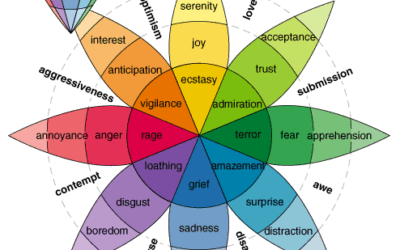Fresh Thoughts
And some old favourites
What’s in a word? It depends
by Susan Johnston | Nov 3, 2014
I spent some time, last week, entangled in a discussion about the meaning of words. I had used the words "intention," "goal" and "objective" interchangeably to mean whatever a person being coached might want to be, do, have or happen. That was causing someone...
Communication Kata 1 – SCARF
by Susan Johnston | Jan 24, 2014
SCARF is a concept developed by David Rock of the NeuroLeadership Institute and popularized in his book, Quiet Leadership. It's a good way to take stress out of a conversation. That's useful, since a person in stress doesn't think clearly.Sometimes, our brain is not...
Communication Kata – The Series Begins
by Susan Johnston | Jan 24, 2014
Holding a good conversation is the best way to instigate change for the better. People hear what's going on, issues are aired, confusion is cleared up, everyone goes away happy, and change goes smoothly. On what planet? While humans are naturally wired to communicate,...
Caution: Engage brain before tweeting
by Susan Johnston | Aug 12, 2013
I recently posted: "Google before you Tweet" is the new "Think before you Speak." Since things posted on the Internet are forever, I thought I'd remind myself and others that it's good to verify your information before pontificating. (I have snopes.com on speed dial.)...
Yes, it’s OK to say “NO!”
by Susan Johnston | Jul 20, 2013
How to prevent the over-commitment that leads to overwhelm This article first appeared in our newsletter in 2003. Still true! “No!” It’s a small yet powerful word, one with big consequences. It’s a word that can improve our lives and make us more valuable to those we...
Lean Conversations 1: Can good communication reduce waste?
by Susan Johnston | Jul 13, 2013
I'm getting lean. Alas, this is not about my body. It's something I'll call "lean communication." I'm not about to preach on short sentences and plain words, though that can be part of it. I'm convinced that good communication reduces waste. In manufacturing, the...
It’s not about you – even when it is
by Susan Johnston | Apr 14, 2013
In a lifetime of working in, studying and observing human communication, I've learned enough to fill about 100 books. If I had to distill it all into one actionable idea, it would be, "Make it about the audience." This advice is as useful when you're talking to one...
Surprise! What coaching taught me about communication
by Susan Johnston | Apr 8, 2013
Originally posted at the International Association Of Coaching For over 30 years, I've been a communication professional. Educated, mentored, accredited and experienced in every form of communication, I looked like the real deal. Yet it wasn't until I trained as a...
Help for the emotionally inarticulate
by Andrew | Jan 25, 2011
Many of us are poor at accurately describing our emotional state. And worse at identifying other people's. This can be unhelpful when we're having a emotion-laden conversation. I think it's because we tend to have a limited emotional vocabulary. It's hard to talk...









